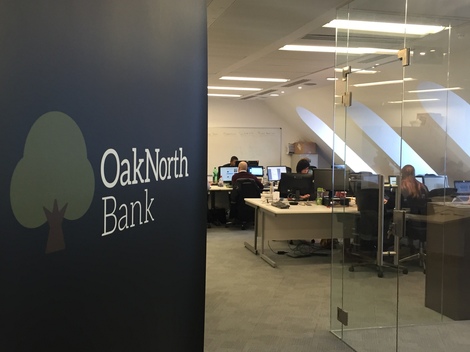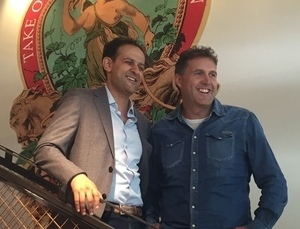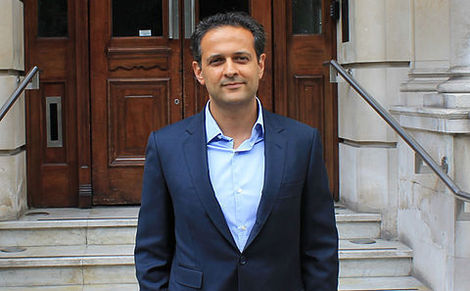Banks have been put through the wringer since the 2008 crash, which may explain why these institutions have become increasingly cautious about lending, and have introduced stricter criteria and greater hoops to jump through in loan applications.
Eight years on, many of the big five banks have relaxed their lending criteria, but up to 60 per cent of SMEs now avoid banks as a source of finance, according to research commissioned by Advanced Payment Solutions (APS).
Most SMEs expect a long wait (an average of 16 days) to hear back on their applications. In terms of setting up business bank accounts, nearly one in six reportedly had to wait more than 26 days, with only 6 per cent of SME applicants receiving access on the day they applied.
Consequentially, a third of SMEs believe dealing with bank red tape makes operating a business a laborious task, but a larger 40 per cent think it’s a necessary evil of operating a business.
These statistics reveal an iceberg of pain points for SME finance.
On the surface, long lead times and black-or-white applications processes are laborious for SMEs seeking finance, but the deeper issue is a lack of awareness that is stunting growth and bruising business confidence.
Most relationship managers at banks may have the best intentions to back their stellar financial expertise, but very few truly understand the entrepreneurial journey.
Enter Rishi Khosla, an entrepreneur who has faced the same stresses and demands as millions of other business owners in Britain.
In 2006, Khosla and his business partner, Joel Perlman faced an uphill struggle while trying to secure working capital to support their rapidly growing business, Copal Amba.
Their business was in good shape, with a healthy cash flow, and strong projections for the future, yet none of the banks were unwilling to help because Copa Amba had no property to act as security.
As Copal Amba kept growing, Khosla and Perlman realised that there are millions of other businesses in the UK facing the same struggles in securing growth finance. Many growth companies, like those in e-commerce or the digital space, work with intellectual property rather than physical assets.
The early stirrings of what would become OakNorth Bank began to form.
After selling Copal Amba to Moodys Corporation, the two embarked in a whirlwind journey to get a bank for entrepreneurs by entrepreneurs up and running.
Here’s their story.
 Name: Rishi Khosla
Name: Rishi Khosla
Location: London
Date launched: OakNorth secured its full banking license in March 2015, went through mobilisation, and began trading in September 2015.
Number of employees: 80
What does your business do?
We are a new, specialist bank focused on lending to fast-growth businesses and entrepreneurs.
Where did the idea for your business come from?
The idea came to myself and my business partner while we were seeking growth capital for our last business, Copal Amba. We had good contracts, good cash flow, and a strong list of clients but because we didn’t have a property to secure the loan against, none of the banks would consider us.
How did you know there was a market for it?
From our own experience of trying to secure growth capital, and also through our conversations with other entrepreneurs who were facing the same inflexible terms given by UK high street banks. In addition, the fact that the five largest banks in the UK control 90 per cent of the market compared to the US and Germany where this figure is more like 40 per cent, was a clear indication that there must be an opportunity.
How did you raise funding, and why?
Our families and various high net worth individuals were able to provide the start-up capital to launch OakNorth. In November 2015, we secured a £66 million capital injection from Indiabulls a leading financial services firm in India, allowing us to scale up faster.
Describe your business model in brief.
We provide loans – typically between £1 million to £20 million – to entrepreneurs and fast-growth businesses, as well as property development finance and property investment loans.

Unlike traditional lenders, we do not default to property as collateral to secure loans against, but instead consider multiple collateral types such as intellectual property, debtors, plant and machinery, and stock.
We also give businesses the chance to meet Credit Committee and present to them directly, which makes the application process much more personal and transparent, and enables us to complete deals in weeks rather than months.
What was your first big milestone and when did you cross it?
Securing our banking license in March 2015 was our first big milestone as still only a handful of banks have been able to do this and without it, none of our other accomplishments since then would have been possible.
What advice would you give to other entrepreneurs?
Don’t give up. There were so many times in the early days of Copal Amba when Joel and I wanted to quit but we kept each other going and it was 100 per cent worth it. That’s why finding the right business partner is also key!
Where do you want to be in five years’ time?
I hope OakNorth will have succeeded in lending billions to the UK’s great entrepreneurs and that those businesses will have gone on to achieve even more success as a result.
If you weren’t an entrepreneur, you would be…
I would be a venture investor.
What is your philosophy on business or life, in a nutshell?
10x. I always look for 10x improvements on the status quo – both for my business as well as my personal life.

Can you talk me through the deal with LEON?
The deal was for £19 million which LEON will use over the next few years to open 50 new restaurants across the UK and hire an additional 1,000 staff. They were recommended us by another one of our clients.
Do you have a ‘bucket list’ for the future?
As a bank, we are sector agnostic – we are simply looking for ambitious, entrepreneurial businesses in the UK that want to grow and need debt capital to do this.







